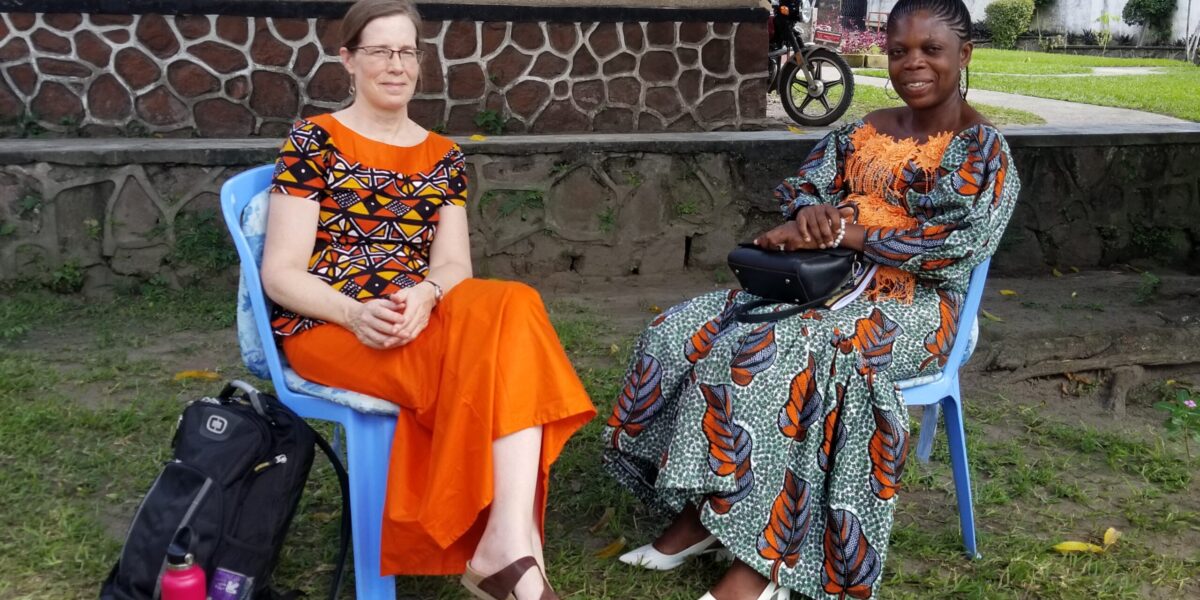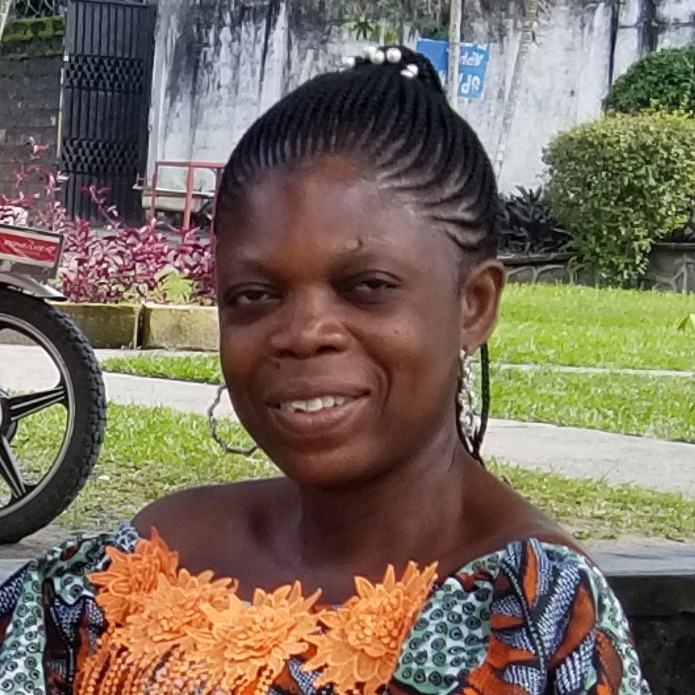In March, a five-day workshop in Kinshasa, Democratic Republic of Congo, honed the research and writing skills of Congolese Mennonite historians and writers. The original version of this article appeared in the April 2023 issue of the Journal of African Christian Biography.
A church history writing workshop was held for Congolese Mennonites, March 20-24, at the Centre Universitaire de Missiologie (University Center of Missiology) in Kinshasa, Democratic Republic of Congo (DRC). The event was organized by Anicka Fast, in her role with Mennonite Mission Network as a specialist in church history and missiology for French-speaking Africa, and Michèle Sigg, executive director of the Dictionary of African Christian Biography, in collaboration with Maurice Matsitsa of the Lay Protestant Ministry of the Communauté des Églises des Frères Mennonites au Congo (CEFMC, Mennonite Brethren Church of Congo).
The purpose of this workshop was to develop the talents of Congolese writers and historians by equipping them with the necessary tools to write biographies about the Mennonite men and women who contributed to the birth and growth of the Mennonite denominations in the DRC. Forty people applied, but space was limited to 16 participants, who were chosen based on a points system which assessed writing capacity and interest in church history, while ensuring representation from both women and men and from the three major Mennonite denominations in Congo.
When I received the registration forms, I hesitated to apply. But an inner voice kept reminding me every day, "Go ahead, Charly. Who knows? Maybe you will be selected."
I was among the last, maybe even the very last, to apply. The day Dr. Fast contacted me to tell me the good news, I cried tears of joy. I was one of the five women chosen to participate.
After an opening worship service, led by Mennonite church leaders, Dr. Sigg introduced us to our work with the story of Lydie Mengwelune of Cameroon (1886-1966). Mengwelune’s life gave a powerful testimony as she gave up royal privilege in the Bamoun Kingdom to follow Jesus. She endured persecution and became a church elder and a powerful evangelist, leading to the conversions of many of those who had persecuted her. Mengwelune’s story inspired us to pay attention to the other church mothers and fathers in our manual. Dr. Sigg’s presentation on the ancient and medieval church in Africa shed light on a little-known chapter in our history. It was the first time that I learned that there were also Black men and women who helped establish Christianity in Africa.
Dr. Fast intrigued us with the story of the Mennonite church’s beginning and fleshed out what we knew about the first mission station in Djoko-Punda. Because of her teaching, we are now able to give lectures in our communities on the history of the church. The workshop brought together members of three Mennonite denominations in DCR — Communauté Mennonite au Congo (Mennonite Church of Congo), CEFMC and Communauté Evangélique Mennonite (Evangelical Mennonite Church). This meant that there was a diversity of ethnic groups, languages and ages that proved to us that we are one body in Christ Jesus. The love and unity of the group was tremendous.
The workshop organizers empowered women. Being women themselves, Drs. Fast and Sigg modeled women’s capacity to lead. I was selected as "village chief" — a student representative and timekeeper for the instructors. This was my first time to experience a woman being given such authority in a workshop that included men, women, and church authorities. I cherish the memory of leading in this way. I felt valued in this workshop and cast off the inferiority complex that used to gnaw at me daily. Inspired by this, I now feel capable of assuming any responsibility in our Mennonite communities and society beyond the church.
Morning worship was another fantastic part of our experience together. The spirit of the Lord was present in the songs each day and throughout all our training sessions. Drs. Fast and Sigg encouraged us to always remain Mennonite Christians in the service of the Lord Jesus Christ. Our church leaders would like to see this project on the writing of the history of the church continue. We, students, have mastered the scientific standards of this training, and we are already at work in the field. We look forward to seeing our research published in a book by Langham Publishing and in the Dictionary of African Christian Biography.
The workshop was made possible through collaboration with Africa Inter-Mennonite Mission, Centre Universitaire de Missiologie, Mama Makeka House of Hope, Mennonite Central Committee (MCC) and the Schowalter Foundation.





